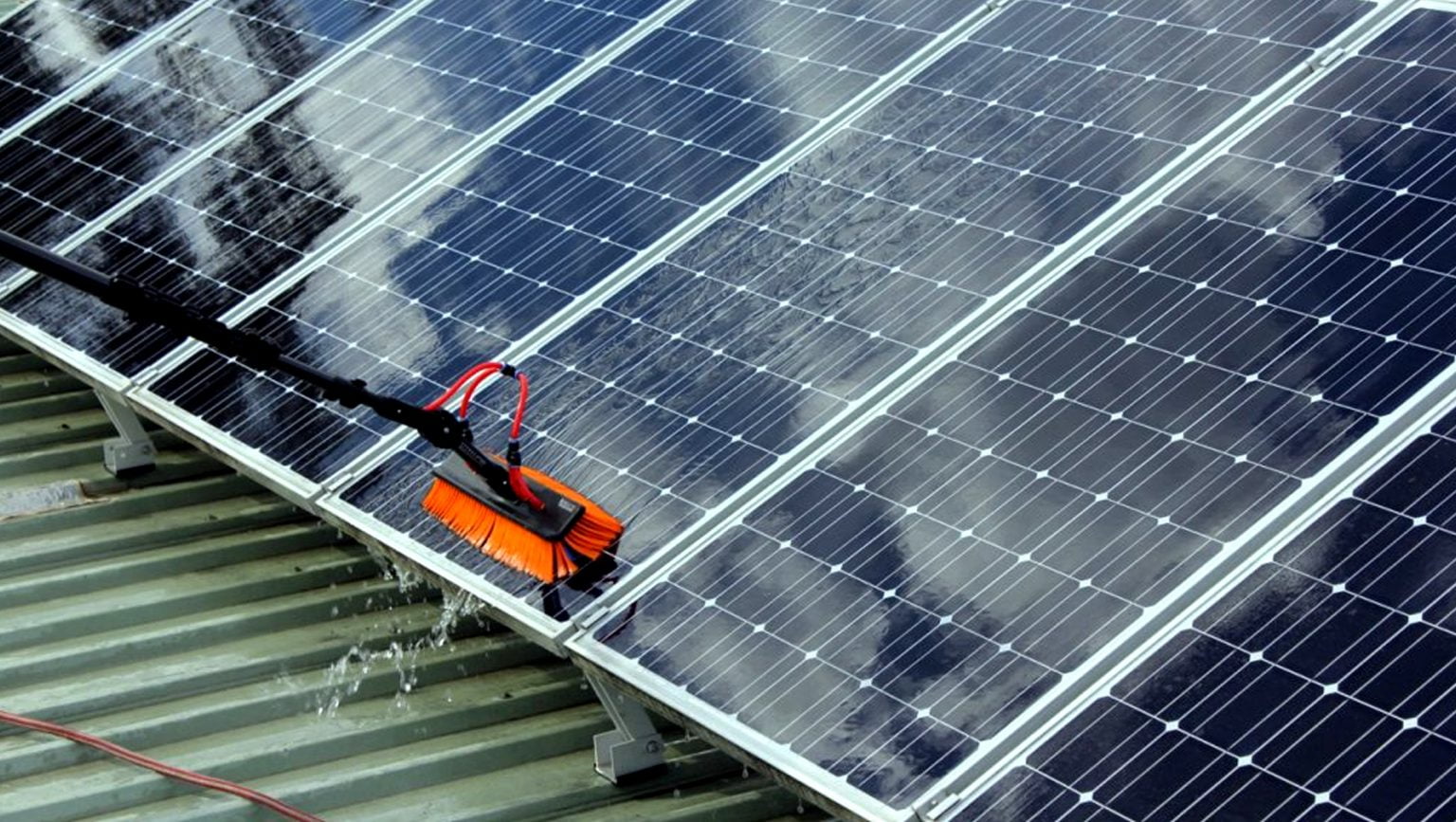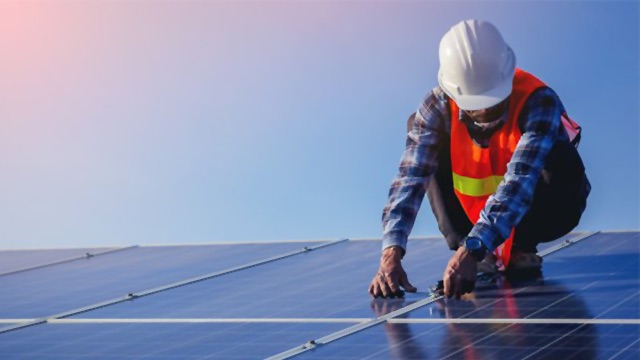
Solar Panel Maintenance Tips for Keeping System Running Efficiently
Solar panels are a great investment for homeowners, as they provide clean and renewable energy while reducing electricity bills. However, in order to ensure that your best solar panel Melbourne system functions at its best, regular maintenance is essential.
In this blog post, we will provide you with a detailed guide on how to properly maintain your solar panels, including cleaning, monitoring performance, ensuring proper wiring and connections, protecting against weather conditions, and understanding warranty and insurance considerations.
By following these tips, you can maximise the efficiency and lifespan of your solar panel system.
Understanding Solar Panels
Before we dive into maintenance tips, it’s important to understand how solar panels work and the benefits of having a well-maintained system. Solar panels consist of multiple photovoltaic cells that convert sunlight into electricity.
When sunlight hits the solar panels, the cells generate direct current (DC) electricity. This DC electricity is then converted into alternating current (AC) electricity through an inverter, which can be used to power your home’s appliances and electronics.
Having a well-maintained and the best solar panel Melbourne system offers several benefits. First and foremost, it ensures that your system operates at peak efficiency, maximising the amount of electricity generated. This, in turn, helps to reduce your reliance on the grid and lower your monthly electricity bills.
Regular Cleaning and Inspection
One of the most important aspects of solar panel maintenance is regular cleaning and inspection. Over time, dust, dirt, leaves, bird droppings, and other debris can accumulate on the surface of solar panels, reducing their efficiency. It is recommended to clean solar panels at least once every six months or more frequently if you live in an area with high levels of pollution or dust.
To clean your solar panels, follow these simple steps:
- Safety first: Before you begin, ensure that the system is turned off and that the panels are not hot to the touch. Use proper safety equipment such as gloves, safety glasses, and non-slip shoes.
- Rinse with water: Start by rinsing the solar panels with water using a hose or pressure washer. This will help remove loose debris and dirt.
- Gentle cleaning: Use a soft brush or sponge with mild soap or the best solar panel Melbourne cleaning solution to gently scrub the surface of the panels. Avoid using abrasive materials or harsh chemicals, as they can damage the panels.
In addition to regular cleaning, it is also important to inspect your solar panels for any signs of damage or wear. Look for cracks, chips, loose connections, or any other visible issues. If you notice any damage, it is important to contact a professional for repairs.
Monitoring Performance
Monitoring the performance of your solar panel system is another crucial aspect of maintenance. By regularly monitoring your system, you can identify any potential issues or inefficiencies before they escalate. There are various ways to monitor the performance of your solar panels.
- Monitoring software and apps: Many solar panel systems come with built-in monitoring software or apps that allow you to track the performance of your panels in real time. These software and apps provide detailed information on the amount of electricity generated, the efficiency of the system, and any potential issues.
- Energy monitoring devices: If your system does not have built-in monitoring capabilities, you can use energy monitoring devices that are specifically designed for solar panels. These devices can be easily installed and provide real-time data on energy production.
- Keep an eye out for signs of potential issues: In addition to using monitoring tools, it is important to keep an eye out for any signs of potential issues. These can include a sudden decrease in energy production, unusual noises coming from the system, or warning lights on the inverter.
If you notice any of these signs, it is recommended to contact a professional for further inspection.
Ensuring Proper Wiring and Connections
Proper wiring and connections are essential for the optimal performance of your solar panel system. Over time, wiring can become loose, corroded, or damaged, leading to a decrease in efficiency or even system failure. It is important to regularly inspect the wiring and connections to ensure that they are in good condition.

Here are some steps to safely inspect the wiring and connections:
- Turn off the system: Before inspecting the wiring, make sure to turn off the solar panel system and shut off the main circuit breaker.
- Visual inspection: Carefully examine the wiring and connections for any signs of wear, damage, or loose connections. Look for frayed wires, loose connectors, or corrosion.
- Tighten connections: If you find any loose connections, use the appropriate tools to securely tighten them. Be careful not to overtighten, as this can cause damage.
- Replace damaged wires or connectors: If you notice any damaged wires or connectors, it is important to replace them immediately. Contact a professional electrician for assistance if needed.
By regularly inspecting and maintaining the wiring and connections, you can prevent potential issues and ensure that your solar panel system operates safely and efficiently.
Protecting Against Weather Conditions
Solar panels are designed to withstand various weather conditions, but extreme weather can still have an impact on their efficiency and lifespan. Here are some tips for protecting your panels against different weather conditions:
- Storms and high winds: During storms or high winds, there is a risk of debris or branches falling on your solar panels. To minimise this risk, trim any overhanging branches and remove any loose debris from the surrounding area. Additionally, consider installing a protective cover or hail guard to shield the panels from potential damage.
- Hail: Hail can cause significant damage to solar panels. If you live in an area prone to hailstorms, consider installing hail-resistant panels or protective covers. Regularly inspect the panels after a hailstorm for any signs of damage and contact a professional for repairs if needed.
- Snow: Snow can accumulate on solar panels, reducing their efficiency. If you live in an area with heavy snowfall, consider installing a snow rake or brush to safely remove snow from the panels. Do not use sharp or abrasive tools, as they can scratch or damage the panels.
Dealing with Shading Issues
Shading can significantly impact the performance of your best solar panel Melbourne system. Even a small amount of shade on a single panel can reduce the overall efficiency of the entire system. It is important to address shading issues to maximise the energy output of your panels.
Here are some solutions for dealing with shading problems:
- Trim or remove shading objects: If possible, trim or remove any trees, branches, or structures that cast shade on your solar panels. This will allow your panels to receive maximum sunlight throughout the day.
- Use micro-inverters or power optimisers: Micro-inverters or power optimisers can help mitigate the impact of shading. These devices are installed on each individual panel and optimise the power output, even if some panels are partially shaded.
- Consider panel tilting or repositioning: If shading is unavoidable, consider tilting or repositioning the panels to minimise the impact of shading. This may require professional assistance, so consult a solar panel expert for guidance.
Regular Maintenance Schedule
Following a regular maintenance schedule is essential for keeping your solar panel system running efficiently. By creating an effective maintenance plan, you can ensure that all necessary tasks are performed on time.
Here are some tips for creating an effective maintenance plan:
- Set reminders: Use calendars, smartphone apps, or other reminder tools to schedule regular maintenance tasks. This can include cleaning, inspections, and monitoring.
- Keep a maintenance log: Keep a record of all maintenance tasks performed, including the date, details, and any issues or observations. This log will help you track the history of your system and identify any recurring issues.
- Consider professional inspections: While some maintenance tasks can be done by homeowners, it is recommended to schedule professional inspections at least once a year. Professionals have the expertise and tools to thoroughly inspect and maintain your solar panel system.
Avoiding DIY Mistakes
While it is important to perform regular maintenance on your solar panel system, it is equally important to avoid common DIY mistakes that can cause more harm than good. Here are some common mistakes to avoid:
- Using abrasive materials or harsh chemicals for cleaning: Abrasive materials and harsh chemicals can scratch or damage the surface of solar panels. Stick to soft brushes or sponges and mild soap or solar panel cleaning solutions.
- Overtightening connections: Overtightening connections can damage the wiring or connectors. Use the appropriate tools and tighten connections securely, but not excessively.
- Attempting repairs without proper knowledge or training: If you encounter any issues or damage that require repairs, it is important to contact a professional. Attempting repairs without the proper knowledge or training can lead to further damage or safety hazards.
Extending the Lifespan of Solar Panels
Proper maintenance practices can help extend the lifespan of your solar panel system. Here are some useful tips for maximising the lifespan of your panels:
- Regular cleaning and maintenance: Follow the cleaning and maintenance tips mentioned earlier in this blog post to keep your panels in optimal condition.
- Avoid excessive heat or temperature fluctuations: Solar panels perform best in moderate temperatures. Avoid exposing them to excessive heat or temperature fluctuations, as this can accelerate their degradation.
- Minimise shading: As discussed earlier, shading can significantly impact the performance of your panels. Minimise shading by trimming trees or repositioning panels if necessary.
- Avoid physical damage: Take precautions to avoid physical damage to your panels, such as from falling objects or accidental impacts. Install protective covers if needed.
Troubleshooting Common Issues
Even with regular maintenance, solar panel systems can occasionally experience issues. Here are some common issues and steps to troubleshoot them:
- Inverter not working: If your inverter is not working, check if it is properly connected to the solar panels and the electrical grid. Ensure that the circuit breaker is not tripped. If the issue persists, contact a professional.
- Reduced energy production: If you notice a sudden decrease in energy production, it may indicate a problem with your panels. Check for shading, dirt, or debris on the panels. If these do not seem to be the issue, contact a professional for further inspection.
- Faulty wiring or connections: If you suspect a wiring or connection issue, turn off the system and inspect the wiring for any signs of damage or loose connections. Tighten connections or replace damaged wires as needed. If you are unsure or unable to fix the issue, contact a professional.
Warranty and Insurance Considerations
Understanding the warranty terms and conditions of your solar panel system is important for protecting your investment. Most solar panels come with a manufacturer’s warranty that covers defects and performance issues for a specified period of time. It is important to read and understand the warranty terms, including any exclusions or conditions.
Additionally, consider having proper insurance coverage for your solar panel system. This can help protect you against unforeseen events such as damage from extreme weather, theft, or accidents. Consult with your insurance provider to ensure that your solar panels are adequately covered.
Getting Professional Help
While regular maintenance can be done by homeowners, there are certain tasks that require professional assistance. When in doubt or if you encounter any major issues, it is always recommended to contact a professional solar panel maintenance service. These experts have the knowledge, skills, and equipment necessary to address more complex problems and ensure the optimal performance of your solar energy system.
Conclusion
Solar panels are a smart and eco-friendly way to generate electricity for your home, but like any technology, they require proper care and maintenance. Regular cleaning and monitoring by homeowners can go a long way in ensuring the efficiency of your solar panels.
However, for more complex issues and safety concerns and to preserve your system’s longevity and warranties, it’s crucial to enlist the services of professional solar panel maintenance experts. Their expertise, safety protocols, and commitment to efficiency can make a significant difference in the performance and durability of your solar energy system.
So, remember, when in doubt, don’t hesitate to seek professionals like sunrunsolar.com.au for your best solar panel Melbourne maintenance needs. Your investment and the environment will thank you for it.



